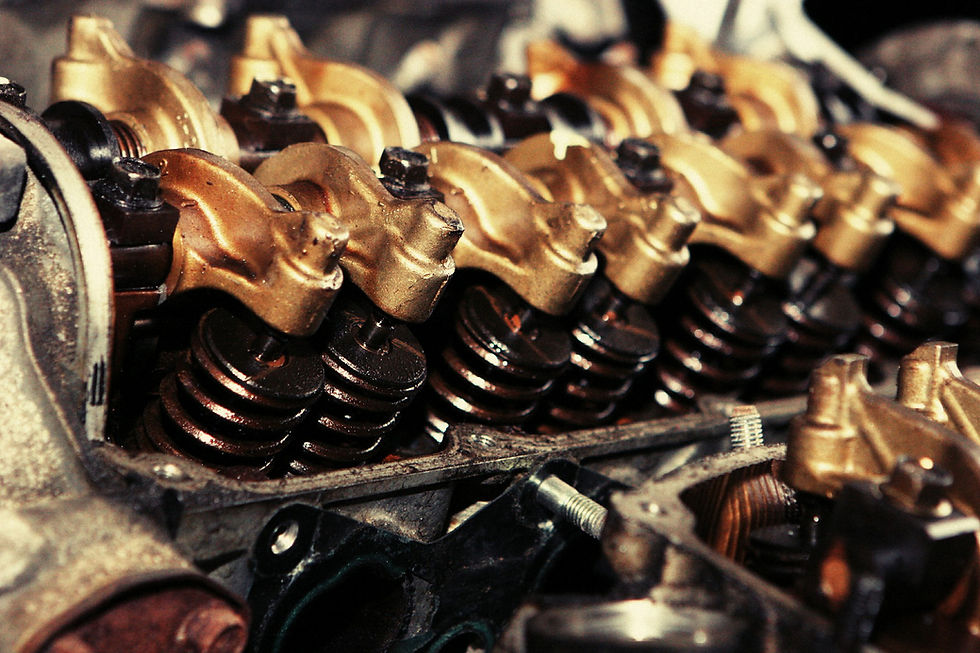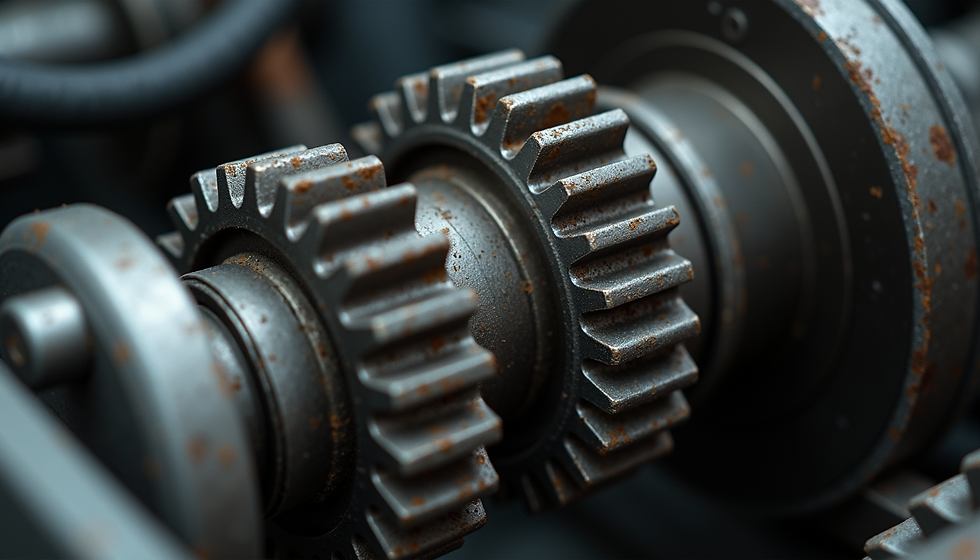Why Are the Brakes on My Car Making Noise-Squealing?
- Autolast Ghana

- Jun 26, 2023
- 4 min read
Updated: May 17, 2024
When you press the brake pedal, your vehicle should rapidly slow down rather than screech inconveniently every time you stop. Although there is not a quick troubleshooting report to describe why your brakes are screeching, there are a few possible causes that can help you focus your search. Here is a list of all the potential causes of your screeching braking mechanism.

HOW COME MY BRAKES SNIFF?
Numerous problems might be the root of that awful sounds. Some are only a gentle caution for later, while others are dangerous and demand immediate attention.
1.Worn brake pads - Even when they deteriorate with usage, brake pads reliably stop your car. The wear indication is a feature added by manufacturers to prevent braking until the pad is abruptly gone. As the brake pad nears its end of life, a small metal tab on the pad comes into contact with the braking rotor, causing a screech like to steel nails on a metal blackboard. That is a clue that the pads need to be changed.
2.Deteriorating pads - Assume you disregarded the wear indicator up above. The pads will keep losing friction material until it is completely gone. The calipers are now forcing the backing plate of the pad to make contact with the rotor. You hear a screech and a loud grinding noise in addition to uneven and diminished braking. Do not be such person since this is really risky.
3.Heat-glazed brake pads do not merely squeal on ancient brakes. Your brakes will probably overheat if you drive down the continental divide for several kilometers while repeatedly using the brakes. Although brakes work best in warm conditions, excessive heat will temper the brake pad, making it smooth and firm.
4.Absence of grease - The braking system noise is reduced by the shim on the rear of the pad. Like many car systems, it functions best when greased up. Unwanted braking sounds might result from pad contact with the rotor caused by a trapped shim. Apply a tiny quantity of brake pad lubricant to the back before changing out the pads to maintain everything running smoothly and from becoming stuck.
5.Small stones in the pad - If you drove your Car over dirt roads when off-roading, it may have picked up a few passengers while traveling through the strange environment. When the wheel is submerged, little stones are scooped up and fall between the pad and rotor. The grit will not come loose on its own because to the incredibly tight tolerances, which are measured in microns. You can hear the brakes being chewed up and the corners being ground off stones every time you press the brake pedal. A professional check might or might not identify a lodged pebble as the issue, but occasionally just removing pads will free a stone.
IS DRIVING WITH SQUEAKING BRAKES SAFE?
Unambiguously, you must have your brakes tested as soon as any symptoms show up to ensure your safety and the safety of everyone else on the road. Proper brake operation is a significant matter. Having stated that, the nature of the problem may differ according to what is making the noise.
You can postpone changing the pads until the weekend if the wear indication has just started to cause trouble. If your brake pads have begun to grind into the backing plate, you must stop right away and ask a friend to drive you to the closest Advance shop so you may purchase replacement brake pads. Additionally, it is crucial to change your brake pads and rotors. If you use the same old rotors as when you first installed your new brake pads, you may experience decreased performance or pulsing in the brake pedal. The best approach to make sure your brake installation lasts a long time is to replace the rotors.
How to stop the noise of the brakes
Are you yet sick of the noise? Thankfully, a fast and inexpensive remedy can generally be found for screaming brakes. Here is what you're supposed to do.
Change the brake pads: With a few basic tools, this straightforward repair is doable even by novices. Get the proper brake pads, set aside an hour, and you can stop that terrible noise. We advise replacing the brake rotors concurrently.
Remove the glaze by sanding the pad and rotor surfaces with 320 grit aluminum oxide sandpaper. If your brakes have overheated, this may be able to stop the squealing. Remember that the pads were likely completely destroyed by extreme heat, thus this is really a temporary remedy.
Lubricate rotating parts: Take off your loud brake pads and lubricate the caliper abutment clips, the pad mounting tabs, the lithium or molybdenum grease (but not both) surfaces where the piston touches the rear of the pad shim. Basically, oil anything that slides or moves, but make careful to avoid getting any on the pad or rotor surface.
Cleaning it up - If there are tiny stones inside that are grinding against one another whenever you stop, the repair is almost free. Remove the brake pads, then use isopropyl alcohol and a high-quality vehicle wash detergent to clean the surfaces of the pads and rotors. As an alternative, you may use brake cleaner and follow the instructions on the package without doing the two-step procedure. The irritating squeal should stop once you reassemble the brake parts with the right lubrication.




Comments